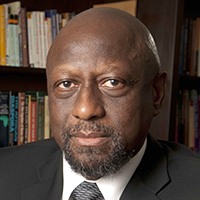
Historically Black Tuskegee University in Alabama was selected to acquire the Pritchett Collection that was assembled by James Anthony Pritchett, a professor of anthropology at Michigan State University, where he was a member of the core faculty for the African American and African Studies Program, and the Center for Advanced Study of International Development. He held three degrees in anthropology — a bachelor’s degree from Ohio State University, and master’s and doctoral degrees from Harvard University. Dr. Pritchett died this past November.
The Pritchett Collection includes more than 1,400 African studies manuscripts amassed over a 40-year period. The collection focuses on research on the African diaspora and studies of African-descended people in the Caribbean, Brazil and elsewhere in Central and South America. Dr. Pritchett’s work was broadly concerned with the interaction between tradition and modernity in contemporary Africa — particularly the ways in which social change is interpreted and validated according to local belief systems.
Dr. Thierno Thiam, an associate professor and chair of Tuskegee University’s department of history and political science, stated that “Dr. Prichett’s research and resources have served as a source of inspiration for many of the African studies scholars of my generation. His commitment to preserving the African perspective has been vital to scholars in our field.”
The collection will permanently reside at Tuskegee’s Ford Motor Company Library — where researchers can review individual manuscripts in person or borrow them through interlibrary loan. Among the collection’s signature pieces are the United Nations Educational, Scientific and Cultural Organization’s (UNESCO) General History of Africa collection and the African Studies Review collection.
“Because of the richness and diversity found in the Pritchett Collection, Tuskegee University stands to the base of a growing pipeline of African American scholars bound for further studies at graduate schools throughout the nation,” Dr. Thiam said. “This collection will influence students studying history and political science, English, sociology and psychology, and agriculture — just to name a few.”


How do you gain access to Dr. Pritchett’s research for research purposes?
Thank You,
Lisa Babin
As a current writer and researcher, where researcher where can I access the United Nations Educational, Scientific and Cultural Organization’s (UNESCO) General History of Africa collection and the African Studies Review collection?